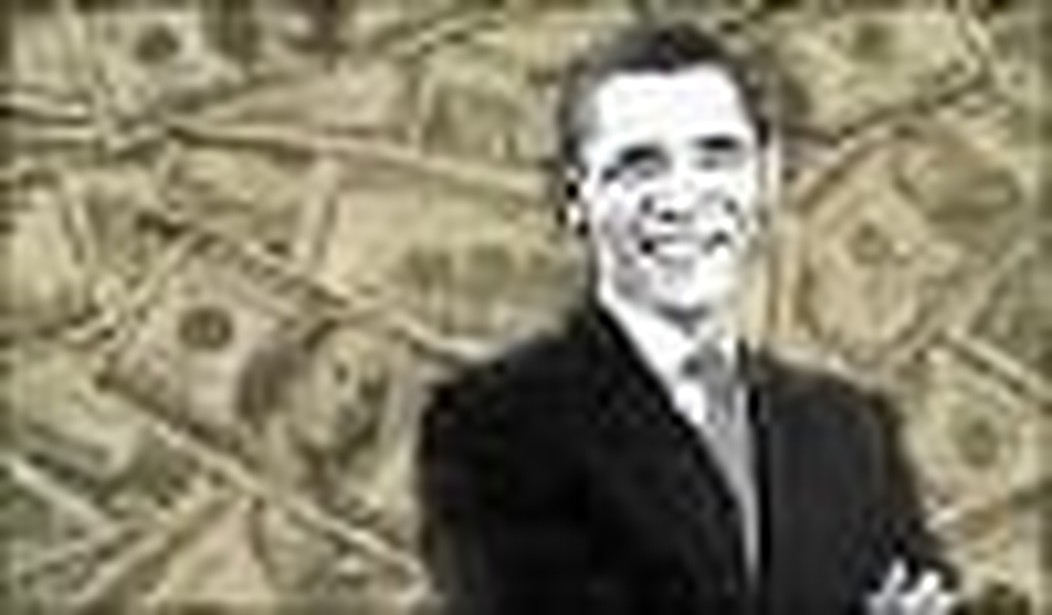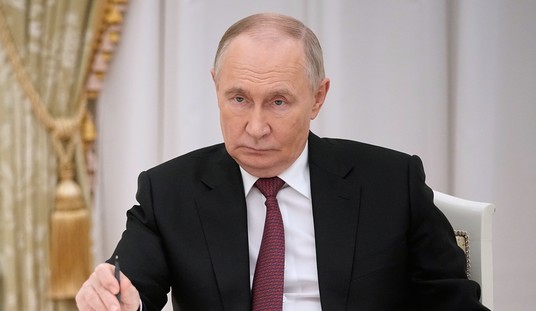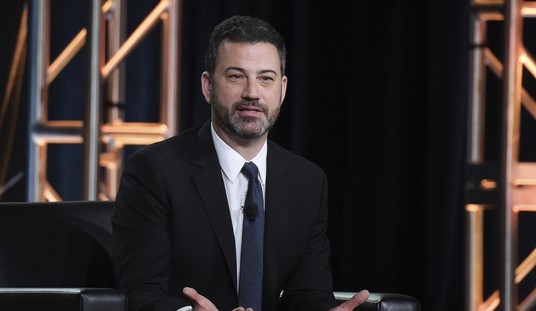Senator Barack Obama has become renowned for his eloquence, and it’s almost unfair. He gets accused of being all sizzle and no steak. I’d even say there is a racial subtext to the criticism — that he is more preacher than statesman.
Lacking the arcane interests and expertise of policy wonks, the public tends to gloss over the prosaic ingredients of campaign promises, especially in regard to the alchemy of economics. What could we expect from an Obama Administration in this regard? My overall take is that Obamanomics is well within the Democratic Party mainstream, neither much to the left nor to the right.
Just from his website material, one thing is clear: There is plenty of beef. Nobody can do a Gary Hart number on the Senator for a lack of substance. It is true that you do not find Obama droning on with this material in stump speeches. Maybe that is the secret of his success.
Let’s take a spin through Obama’s views on some of the economic issues that matter most.
Monetary policy. Monetary policy of the Federal Reserve is commonly held to be the most powerful weapon in the government’s arsenal. Senator Obama has said: “It’s not my place to comment on the actions of the Fed.” In other words, by upholding “the independence of the central bank,” the Obama campaign’s monetary policy is to have no monetary policy.
Cynics and other subversives would say an independent central bank is a bank in thrall to the banking industry, or more broadly, to the commanding heights of Wall Street. Critics of the Fed often maintain it is insufficiently attentive to its mandate of promoting full employment and overly vigilant against inflation. Obama’s position here is that of the mainstream, not of the left.
The Budget Deficit. Obama’s chief economic spokesperson, Professor Austan Goolsbee, is emphatic that there can be no thought of balancing the budget from “the hole President Bush has gotten us into.” Obama sees public investment as a more pressing objective than attaining budget balance and has announced plans for a multi-billion dollar National Infrastructure Reinvestment Bank. As to just what sort of deficits might be tolerable, Goolsbee is noncommittal. Obama supports the current PAYGO regime adopted by the Democratic Congress, which means all new initiatives would require offsets (tax increases or spending cuts) and thereby not increase deficits. The infrastructure bank sounds like the establishment of a separate, capital budget, something public investment advocates have long pined for. As such, it would be a departure from the PAYGO regime.
For Senator Hillary Clinton, fiscal responsibility is central to the experience of the 90s. She puts more emphasis on balanced budgets. The legend of the “fabulous decade” is that the Clinton deficit reduction plan of 1993 turned around adverse trends bequeathed by Presidents Reagan and Bush, leading to an economic boom and budget surpluses. Some of Clinton’s top economists, such as Joseph Stiglitz and Alan Blinder, don’t tell the same story. Blinder credits the ’93 budget with sparking a bond market rally that reduced interest rates and set the stage for an investment surge. But the magnitude and timing of the effect, from Blinder’s standpoint, do not account for the greater part of the investment boom that only jelled several years later.
John Edwards’ de-prioritization of deficit reduction was more consistent with Obama’s posture. Clinton is more of a budget balancer. In one of her recent criticism’s of Obama, she said, “So when I hear Senator Obama talk about that, I wonder which fights he wouldn’t fight. Would he have not fought to get to a balanced budget and a surplus and help create 22 million new jobs?”
Taxes. Like most Democrats, Obama would rescind at least part of the Bush tax cuts. He would use the proceeds to finance new tax credits for working families. He also proposes loophole-closing and simplified tax filing. These wholesome ideas are of a piece with the Democratic orthodoxy of tax simplification and revenue neutrality — reducing the tax burden of the many at the cost of a privileged few.
Trade and Competitiveness. Obama proposes to amend what he views as a flawed NAFTA agreement and to include social clauses on environmental and labor standards in future trade agreements. Such an agreement would bind U.S. trading partners to minimum standards of environmental regulation and worker rights. The posture of all of the Democratic campaigns is similar on this front.
I pushed Goolsbee on the question of protectionism, offering him the opportunity to distinguish Obama from John Edwards. Edwards conveyed perhaps the harshest criticism of past trade agreements. Goolsbee passed, asserting that in matters of trade there is little difference among the candidates. With Edwards’ departure from the race, Obama has stepped up his criticism of past trade agreements, notably the North American Free Trade Agreement negotiated by President Bill Clinton.
The more general Obama approach to international competition is Clintonian: support for public investment in “human capital.” Obama would face the same problem as Bill Clinton — how to finance investment initiatives in a tax-phobic environment after criticizing the H.W. Bush budget deficits. The next president will have a more difficult time than Clinton, since the Social Security Trust Fund surpluses will begin to shrink. Less of that loose change will be available to prop up the rest of the federal spending.
Labor markets. Obama decries the stagnation of wages and the growth of inequality. His remedies are tax cuts, a minimum wage indexed to inflation, and investment in education.
A tax cut is a one-shot deal; it cannot in and of itself offset ongoing wage stagnation and growing inequality. A minimum wage that keeps up with inflation benefits the lowest-paid workers and adds some trickle-up effect, but leaves most of the working class just as vulnerable as now. Investment in education can be of some help if significant investment indeed came to pass.
All of the Democratic candidates’ promises in the areas of tax cuts, education, the minimum wage, and modest trade reform may sound adequate to the public, but may not prove satisfactory in actual implementation. Where labor standards are concerned, there remains the question of power. In this economy, people with perfectly adequate educations have been displaced by globalization. Though a strong advocate of free trade, Blinder fears a tidal wave of such calamities. Insofar as the U.S. system of social insurance fails to shield workers from such creative destruction, there will be demands for additional remedies in the field of labor market regulation.
In fairness, responding to globalization and reversing wage stagnation is a monumental task. Like his rivals, Obama is committed to supporting trade unions’ right to organize and strike, but bigger and better answers to globalization are not easy to find.
Health Care. There has been something of a tempest in this teapot. Paul Krugman and others have criticized Obama for proposing to provide affordable access to health insurance for all, but no requirement for individuals to enroll. The danger is that people will ‘free-ride’ by delaying participation in a public system until they are sick, thereby imposing costs on everyone else without having previously shared in the risk-spreading.
A mandate is only as good as its enforcement, and mandates on individuals are difficult to enforce for the simple reason that a payment required of tens of millions of people is difficult to enforce. Just look at the Federal tax system, which fails to collect one of every six dollars owed. By contrast, a voluntary system can be inviting or not. Positive incentives in a voluntary system could be more powerful than coercive measures in a compulsory one.
The most popular objection to Obama’s plan is also the silliest: that it is not universal because some would have the right to decline enrollment. Anybody who wants to will be able to enroll in the plan. The mandated participation in the competitors’ plans is universal like the income tax is universal. The premise that a mandate is more progressive than a voluntary program can be a tricky question. An onerous mandate is a political liability, while an inviting voluntary program is an asset. Conversely, a program with uncontrollable costs will not survive, and paternalism is accepted when the objective is broadly supported. The details matter.
Under the Medicare drug benefit, the cost of enrollment depends on whether you signed up at the start of the program or subjected yourself to higher fees by waiting until it was more convenient. Under ObamaCare, your decision to postpone participation could entail a higher charge, thereby encouraging early enrollment and fewer holdouts.
Goolsbee claims that some free-riders would not deprive a public system of net revenue. Lower income people would get subsidies to participate in a mandate system, and these subsidies plus their health care costs would offset their contributions to the system to a greater than average degree. Higher income people tend to insure themselves, even when it might be a good risk to forego insurance.
In general, the inclusiveness and solvency of a system with or without a mandate depends on features that are not typically spelled out in campaign platforms, as Henry Aaron pointed out recently.
So that’s a taste of Obamanomics. It’s not too hot, not too cold. For some it’s just right. Whether you agree with the specifics or not, powering the verbal pyrotechnics is some wonky engineering.
Max B. Sawicky is an economist with the Federal Government. The views stated here are his alone, not those of his colleagues or his employer.









Join the conversation as a VIP Member